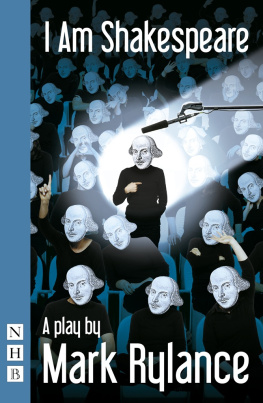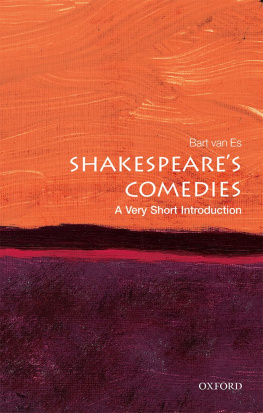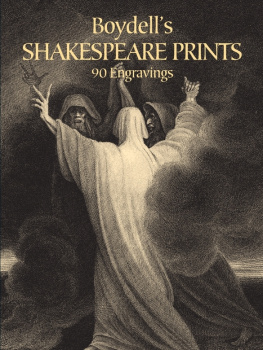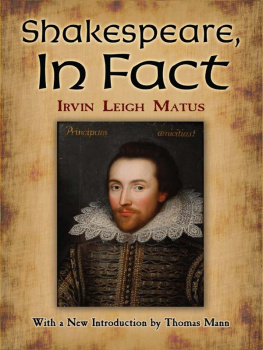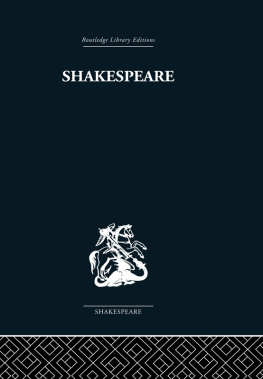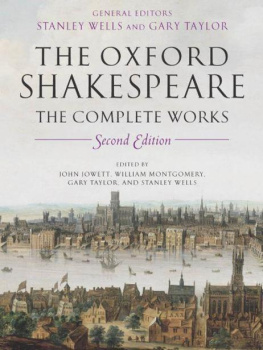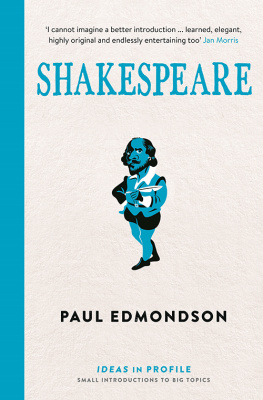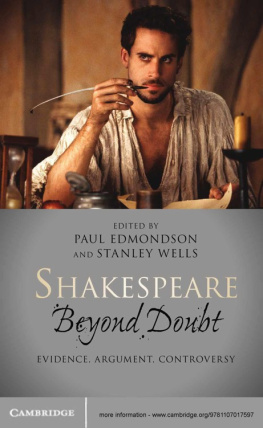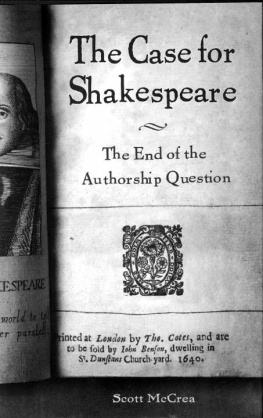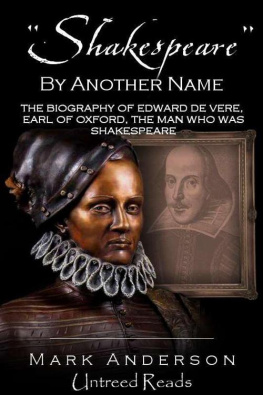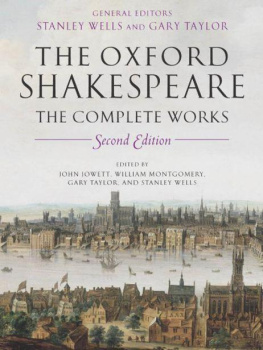Mark Rylance
THE BIG SECRET LIVE
I AM SHAKESPEARE
WEBCAM DAYTIME CHATROOM SHOW!
A Comedy of Shakespearean Identity Crisis

NICK HERN BOOKS
London
www.nickhernbooks.co.uk
Introduction
The Big Secret Live I Am Shakespeare Webcam Daytime Chatroom Show was created in the summer of 2007 for the Chichester Festival Theatre. Greg Ripley-Duggan produced the play, and subsequent to our run in Chichester, organised a brief tour to Warwickshire, Oxford and Cambridge University, amongst other places. This was not unlike taking a play that questioned Robert Burnss identity as a poet, to Scotland. But, for some reason, the Shakespeare authorship controversy pierces deep to the heart of identity for some people, wherever you play. It was the extreme reaction of otherwise reasonable people that inspired this play. Their efforts to repress my curiosity, and frighten others away from the mystery, were funny in retrospect but extremely trying at the time, especially when I was Artistic Director of Shakespeares Globe Theatre in London between 1995 and 2005.
I say that the play was created, as I had only written the first act and some of the second when the cast gathered in the Soho Laundry to begin rehearsals that summer. Under Matthew Warchuss excellent direction, which included many improvements and developments of the script and idea, we then created the play. All of the original cast, especially Sean Foley who played Barry, improvised lines and situations, which I later included in the text. I am indebted to this spirit of adventure and collaboration, which, by the way, has always been my image of an aspect of the creation of the Shakespeare plays as well.
The play is set in the then present: 2007. I am writing this introduction to the published text in 2012. Some things have happened since in the world of Shakespearean authorship studies that probably warrant mention in a new production James Shapiros book, Contested Will, and others. Frank, in the play, would certainly be aware of the Roland Emmerich film, Anonymous, and the fuss it generated, not least the website created by the Shakespeare Birthplace Trust, Shakespeare Bites Back, which has some passing similarities to Franks own website. I wonder if anyone came to our play from the Birthplace Trust when we played down the road in Warwick University. Professor Jonathan Bate, of that university, soon after created his own play with Simon Callow called Being Shakespeare. When I mount a new production I will probably update the script, and will be able to offer the new material I create. It is also always a possibility to produce the play as a period piece set in 2007. As much as things have changed in the sphere of authorship studies, the technology of computers has changed even more. This also needs to be born in mind. Allowing the audience to send text messages, instead of, or as well as, phoning in to the show, might be a good idea.
I am also indebted to the many independent and professional Shakespeare scholars whose work has fascinated me since I first began to develop my reasonable doubt that the actor William Shakspar wrote the plays: Peter Dawkins, Diana Price, Robin Williams, Professor William Leahy, Charles Beauclerk, Stephanie Hopkins Hughes, Mike Frohnsdorff, Professor Daniel Wright, Professor William Rubinstein, Professor Stanley Wells, Professor Jonathan Bate, Nigel Cockburn, Michael Wood, John Shahan, to name a few of the many people whose work has inspired me. This is to neglect the many before my time who have loved Shakespeares work in such a way that they felt they must inquire about its origin, including a few in his own time brave enough to hint at the mystery: Ben Jonson in particular. I am also indebted to David Canter, the author of a book on the mystery of Jack the Ripper, Mapping Murder. A good read for the actor playing the sergeant.
As the play involves improvised interaction with the audience, it is recommended that the actors playing Shakspar, Sidney, Bacon and Oxford read as much as they can about their characters authorship case. I have endeavoured to write each character as if they wrote the plays themselves, singularly or collaboratively. The Shakespearean Authorship Trust (SAT) has an excellent website on which books are recommended on each candidate. I would recommend Beauclerk and Hopkins Hughes on Oxford, Dawkins and Cockburn on Bacon, Williams on Mary Sidney, and on Shakspar? Take your pick. Diana Price is the best on why there is a question at all. Mark Twain, the funniest. The Declaration of Reasonable Doubt at www.doubtaboutwill.org is a clear statement also of why there is a question.
My apologies to those who champion other candidates, especially Christopher Marlowe, Neville, and Derby. There was not time to do their cases justice. But, ultimately, the play is more concerned with the search for identity, our own identity, than the search for the identity of the author of the Shakespeare works.
The whole adventure was initially inspired by the brilliant American TV show, Meeting of Minds, created by the genius host, Steve Allen. I used to work on the play in my dressing room at the Comedy Theatre in Londons West End, while performing in the farce Boeing-Boeing. The director, John Dove, was a great encouragement during this period. Curiously, if my memory serves me right, I Am Shakespeare had as much laughter, if not more at times, as Boeing-Boeing. Those times did not include the performances at Warwick University, where the students were actively discouraged from attending, and the audience was, shall we say, deconstructed.
Needless to say, I love Shakespeare the work and the author more than any other human art I have ever encountered. I have made my living, in many more ways than an actors pay check, on Shakespeare, since I was sixteen years old (which was thirty years ago at the time I wrote this play). I do not believe, as was charged against me at the Globe, that I am biting the hand that fed me. I am attempting to shake it. The fact that Shakespeares work will all disappear from the universe one day is more awe-inspiring to me than my own death.
But what a laugh we had making this. I will never forget it. Rehearsing from ten till six. Home for dinner and then writing until my head literally fell to the desk at three or four in the morning. Thanks to all who believed it was worthwhile to ask, Whos there?
And to all those audience members who stood at the end of the play and shouted I am Shakespeare You are.
Mark Rylance
Production Note
The action of the play takes place entirely in and around Frank Charltons garage, on the outskirts of Maidstone, Kent, on the day that the play happens to be performed.
The play begins in the early evening and concludes later that night. It is a rainy night with lightning and thunder.
The telephone on Franks desk is live and the number is real. At the top of the show an announcement invites the audience to please leave their mobile telephones switched on throughout the play and to ring the actors whenever they wish. The telephone number remains visible on the large television screens hanging above the garage set. (Though sometimes, I have to confess, we had to close the telephone line to let the action flow, and because certain members of the audience wrote the number down and telephoned from home the next night, which seemed like a scripted phone call to the present audience. It would be good to resolve this slight issue.)
These screens also project images from the camera filming live inside the garage, the webcam inside Franks refrigerator in his house, and other documentary and pictorial evidence from Franks laptop.
Next page
